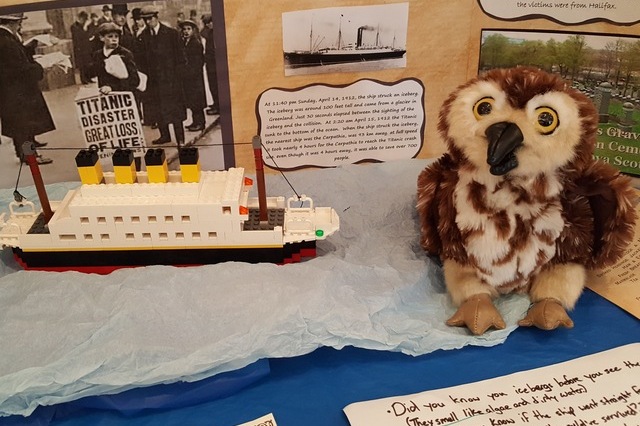May 13, 2019 Having spent the past two weeks at four out of five Regional Heritage Fairs, I had the chance to talk to a lot of young Canadians between the ages of nine and fourteen. I also had the chance to see their wonderful projects about Canadian heritage. Every year, the students select a diverse range of topics relating in some way to Canada's living heritage. Some of these topics do not feel very "historical" in the traditional sense that many associate the word "heritage". This might be because they are about recent events, trends, or individuals; it might also be because the project was about a type of technology that focused more on the technology itself than its place in a larger historical context. Some topics, such as those about climate change, focus a lot on the present and future. Lately, there have been politicians who have dismissed the protests and concerns of young people because they are not yet old enough to vote and are holding their rallies during school hours. (Of course, once they are old enough to vote, they get dismissed as still too young and lacking experience; and no matter how old anyone is, there is always someone telling them to get back to work if they are striking or protesting.) However, it is heartening to see those between the ages of six and eighteen wanting to and believing that they can influence change. They are indeed willing to put their education on the line. They want to be heard. As someone who likes to learn a little bit about everything, there are very few Heritage Fair topics that I am entirely unfamiliar with. However, I always learn something new from the students each year. I am also always delighted to see how the students interpret their topics in their presentations and displays. One such project that captured my attention this year was about one of my old favourite topics (and likely what I might have chosen for a hypothetical Heritage Fair project myself) - the RMS Titanic disaster. It was beautifully-designed and the presentation was excellent, especially considering that there were two students. It was very clear that the students had rehearsed so that they contributed equally to the presentation and answered questions expertly. They also had a list of Canadian and Canada-bound passengers and told some of their stories, as well as the contributions that Canada made in the disaster's aftermath. While this was a British ship bound for the United States, there are many Canadian connections to the story. One can even add that the 1997 film was directed by a Canadian! This is the type of project that can be dismissed as "not very Canadian" or "overdone", but I disagree. Not only are there plenty of connections to Canada, but the story is told many times for a reason. (And students are discovering it for the first time - the 1997 film was released ten years before these students would be born and they were five when the remastered version was released.) Why, for example, are we obsessed with the Titanic and know fairly little about the RMS Empress of Ireland, which sunk in Canadian waters with primarily Canadian passengers? The answer to that question is not entirely because the Titanic got more press or because the Empress of Ireland sank a couple of months before the First World War began. The main reason is because the Empress of Ireland, while tragic, was the equivalent of a bus or automobile crash today. It was a routine trip gone wrong. The Titanic, on the other hand, was considered unsinkable and the disaster was primarily the fault of human hubris. It was on its maiden voyage. There were not enough lifeboats. To be honest, the Titanic disaster is one of those events that can be a symbol for humanity's experience as a whole. Our planet is like a ship floating through space. On it, we have the wealthy, the middle classes, and the poor together, often separated by locked doors. We can be headed for a disaster entirely of our own making, even as it is caused by natural processes. We can try to avoid the iceberg, or we can try to figure out how to hit it that will cause the least damage and prevent the ship from sinking. We can try to have enough lifeboats and unlock the doors. Unlike with the Titanic, most of us can see the iceberg ahead. Young people know that they are the ones that are going to have to deal with it and they are furious. They are not "future citizens" or "future voters" or "future taxpayers" to be dismissed. They are already citizens and deserve respect. They deserve to be listened to.The Past, the Future, and Listening to Young People

